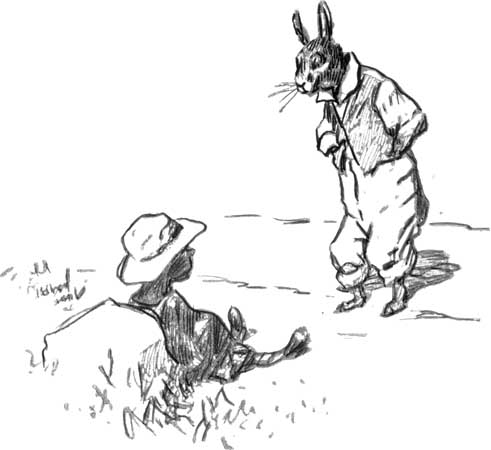Brer Rabbit stories are akin to fables .They are resistance allegories which were developed in the antebellum African American in the oral plantation oral culture American of song and stories such where the weak deceive and defeat the strong and the dominant.
The larger animals (the dominant powerful) were repeatedly lambasted and outclassed by the smaller Brer Rabbit (the African American)inevery situation pitting their wits their wits . The contest in which the quick witted always defeated and the dominant and powerful,archetypal tales of social protest and powerful forms of hidden resistance using recognisable illustrations.
Trickster figure originating in African folklore and transmitted by African slaves to the New World, where it acquired attributes of similar native American tricksters Brer, or Brother, Rabbit was popularized in the United States in the stories of Joel Chandler Harris (Harris, Joel Chandler) (1848–1908). The character's adventures embody an idea considered to be a universal creation among oppressed peoples—that a small, weak, but ingenious force can overcome a larger, stronger, but dull-witted power. Brer Rabbit continually outsmarts his bigger animal associates, Brer Fox, Brer Wolf, and Brer Bear.

Trickster figure originating in African folklore and transmitted by African slaves to the New World, where it acquired attributes of similar native American tricksters Brer, or Brother, Rabbit was popularized in the United States in the stories of Joel Chandler Harris (Harris, Joel Chandler) (1848–1908). The character's adventures embody an idea considered to be a universal creation among oppressed peoples—that a small, weak, but ingenious force can overcome a larger, stronger, but dull-witted power. Brer Rabbit continually outsmarts his bigger animal associates, Brer Fox, Brer Wolf, and Brer Bear.

